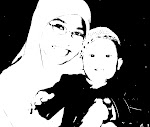

Pic(Rt): whyfile.org
God said in the Quran about one of the evil unbelievers who forbade the Prophet Muhammad, peace be upon him, from praying at the Kaaba (Holy Mosque):
Let him beware! If he does not stop, We will take him by the Naseyah (front of the head), a lying, sinful Naseyah (from of the head)![Holy Quran 96:15-16]
Why did the Quran describe the front of the head as being lying and sinful? Why didn't the Quran say that the person was lying and sinful? What is the relationship between the front of the head and lying and sinfulness?
If we look into the skull at the front of the head, we will find the prefrontal area of the cerebrum, in the area we call the forehead. What does physiology tell us about the function of this area? A book entitled Essentials of Anatomy & Physiology says about this area, "The motivation and the foresight to plan and initiate movements occur in the anterior portion of frontal lobes, the prefrontal area. This is a region of association cortex.." Also the book says, "In relation to its involvement in motivation, the prefrontal area is also thought to be the functional center for aggression..."
So, this area of the cerebrum is responsible for planning, motivating, and initiating good and sinful behavior, and is responsible for the telling of lies and the speaking of truth. So, it is proper for the telling of lies and the speaking of truth. So, it is proper to describe the front of the head as lying and sinful when someone lies or commits a sin, as the Quran says:
...A lying, sinful Naseyah (from of the head)!
Scientists have only discovered these functions of the prefrontal area in the last sixty years, according to Professor Keith L. Moore. [Scientific Miracles in the Front of the Head p. 41]
scienceislam.com/quran_miracles.php



